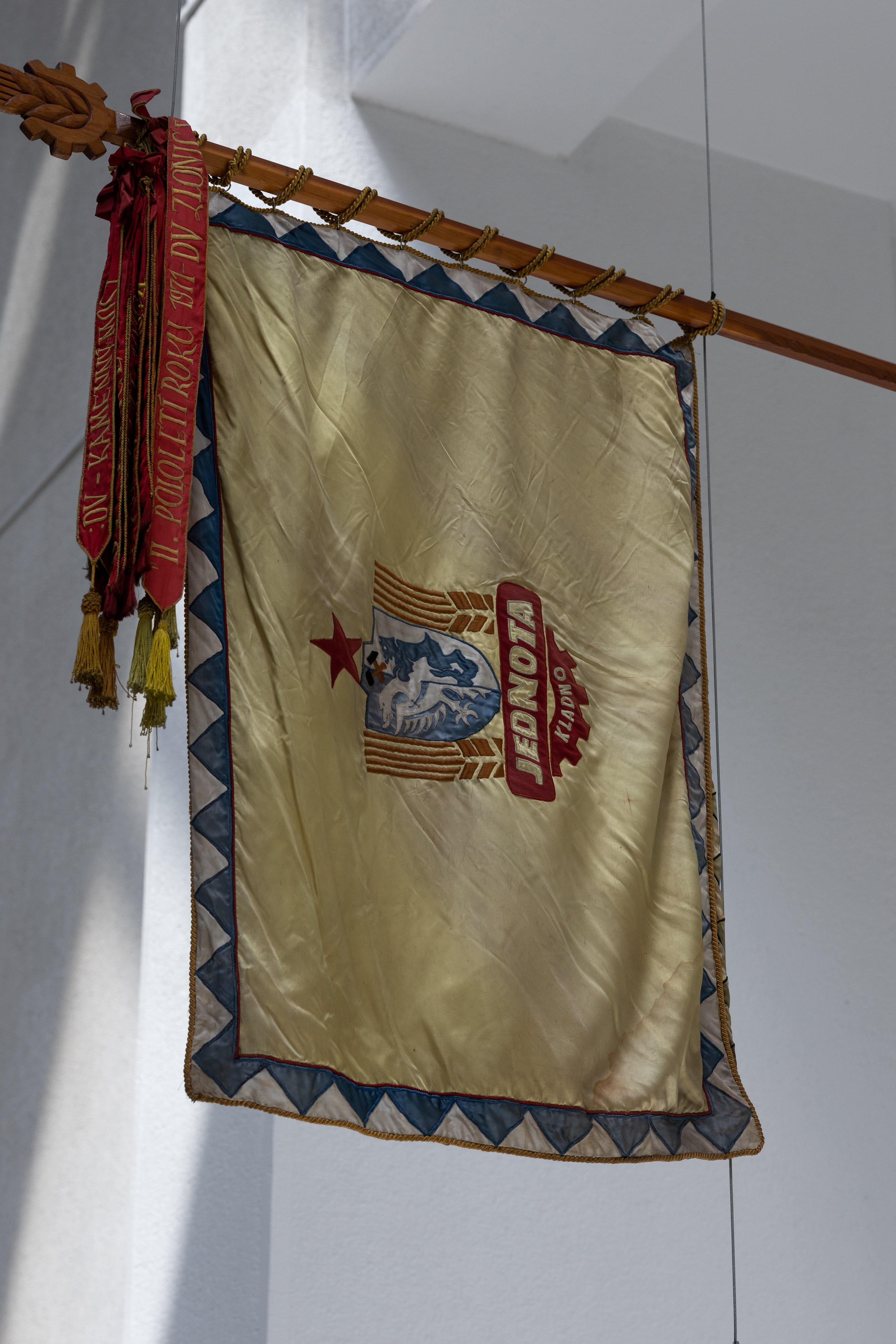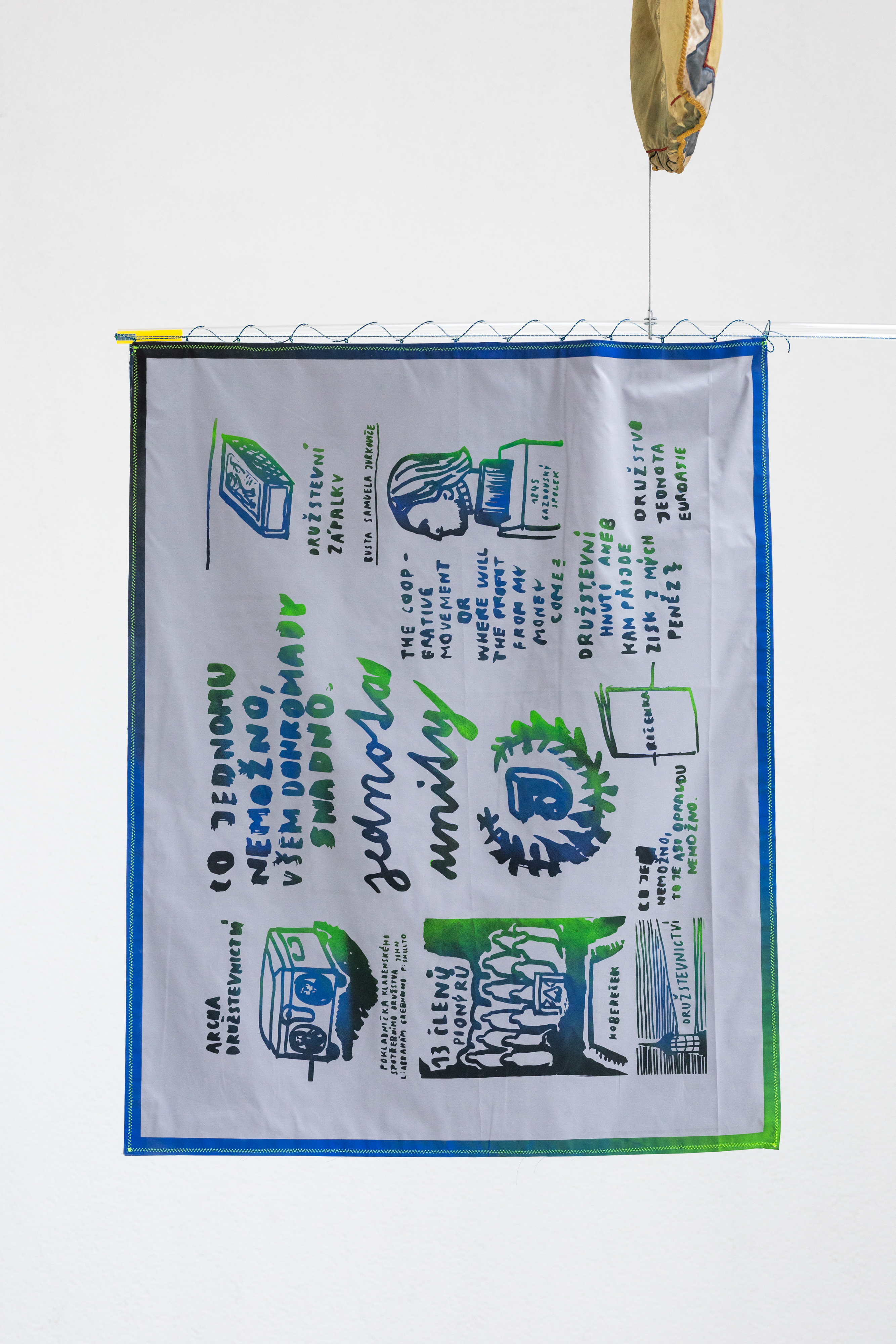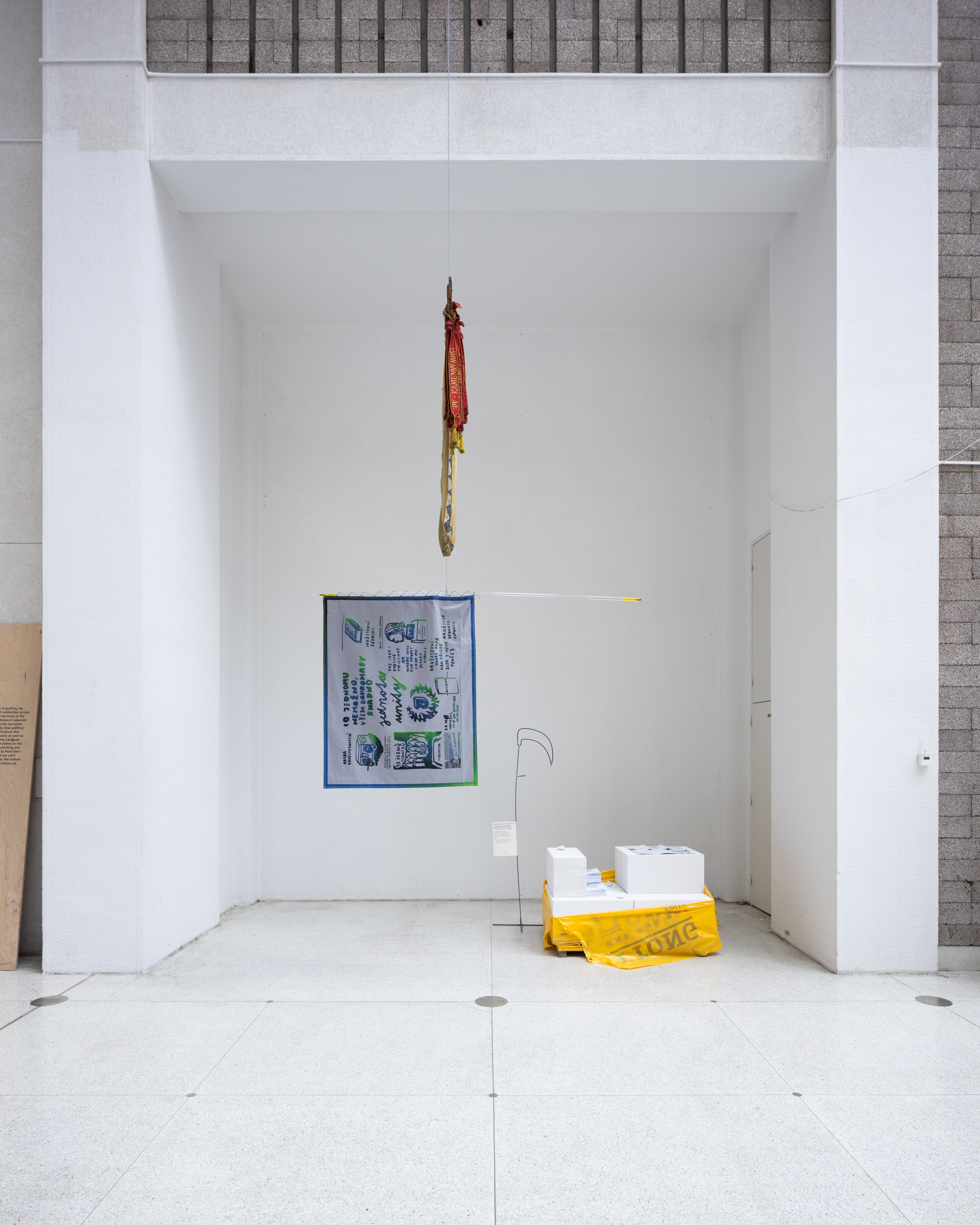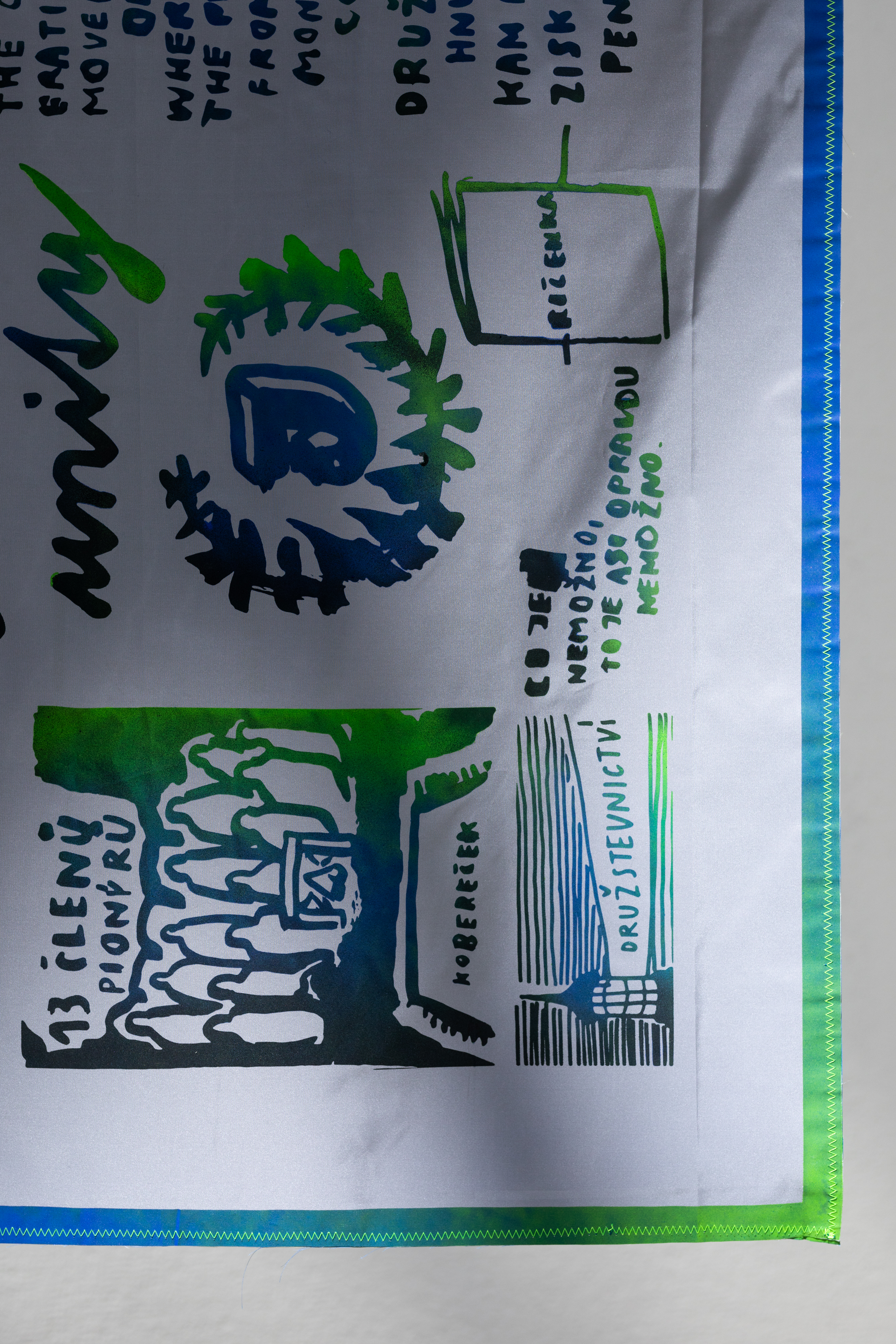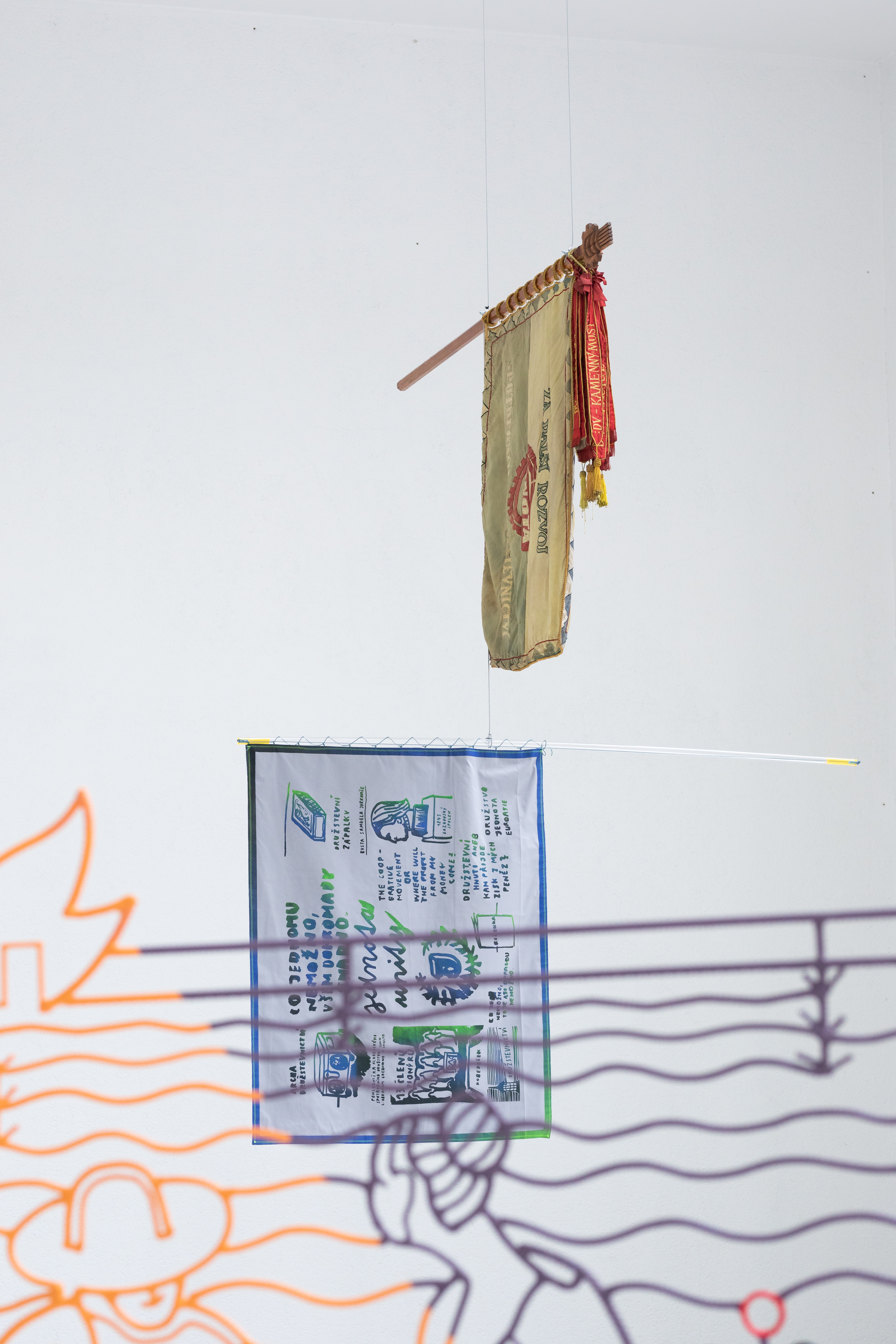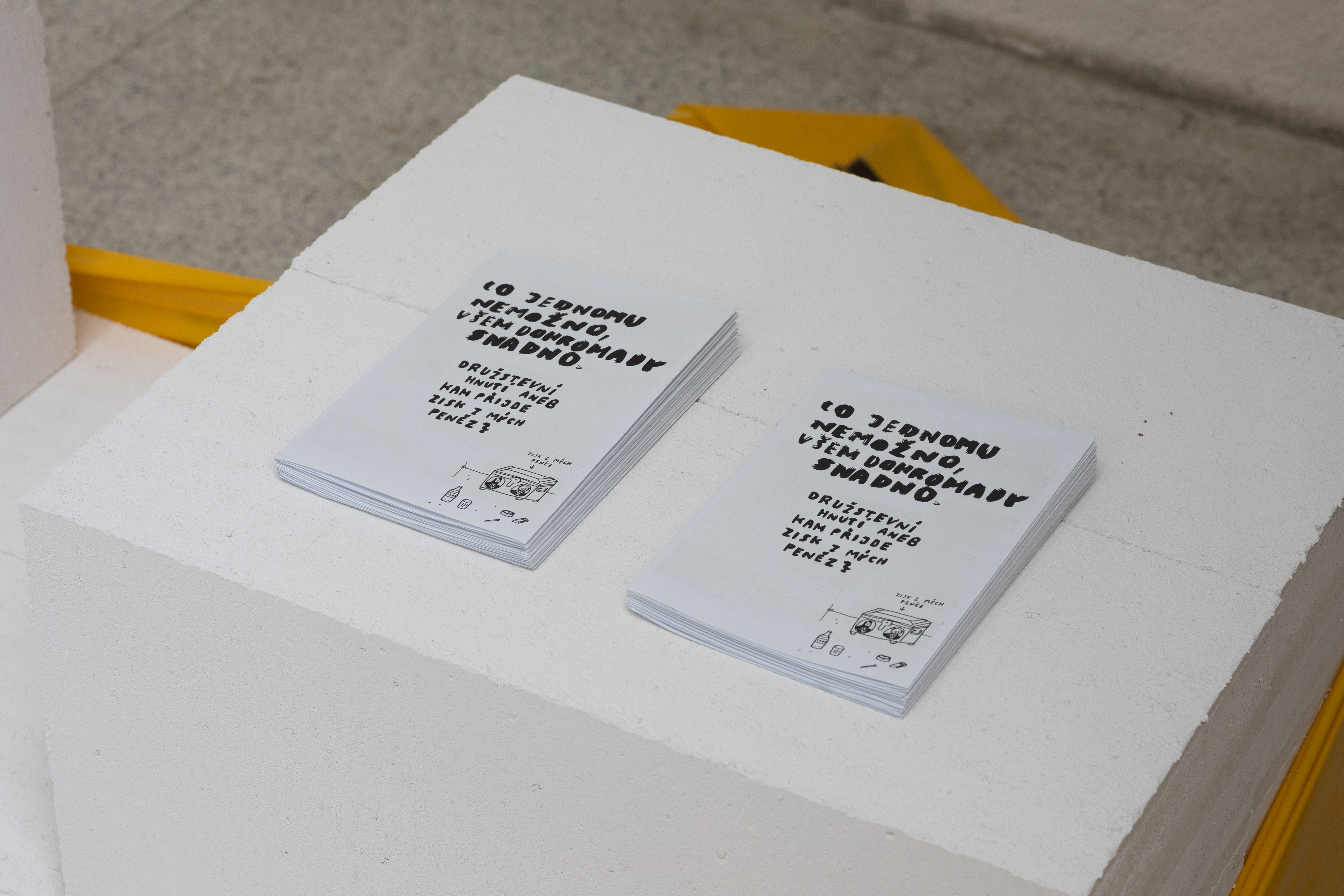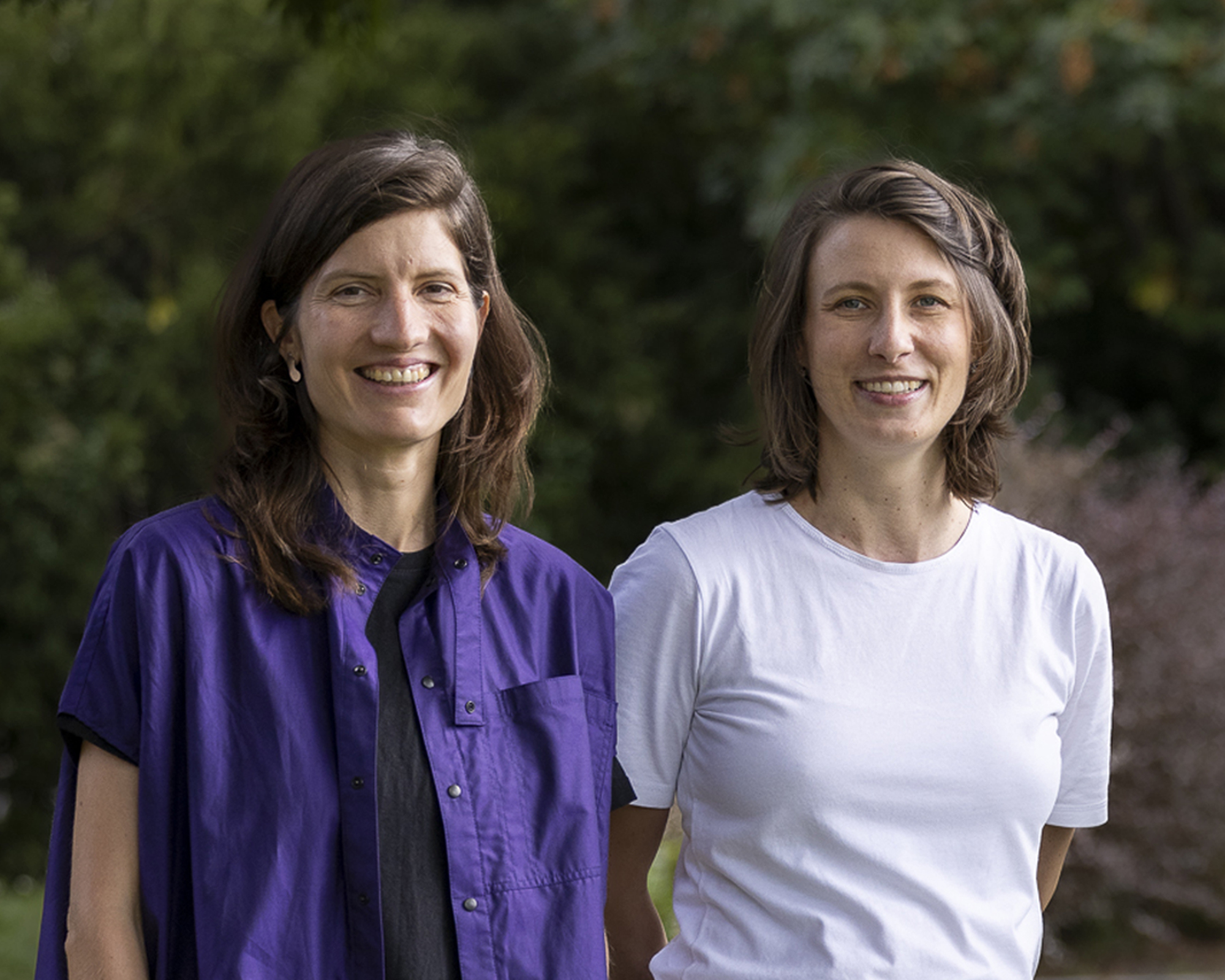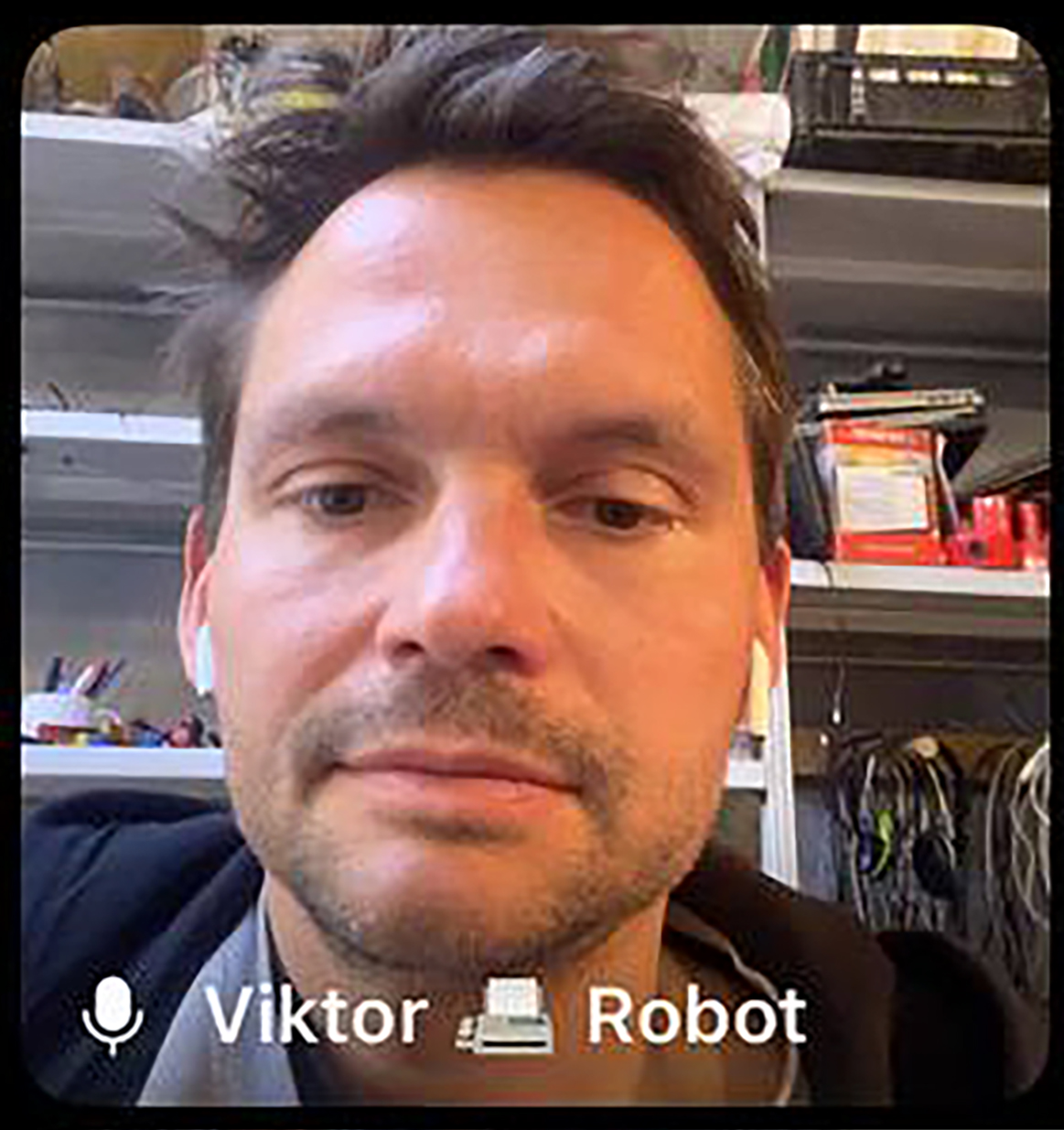cosa.cz, cultural cooperative (Markéta Mráčková, Barbora Šimonová) & Viktor Vejvoda
Work exhibited in the Trade Fair Palace:
What Is Impossible For One… Is Easy For Us All Together! / 2024 / educational participatory installation / banner of Jednota Zlonice (1975, 1 m × 0.78 m), brochure, banner of Cultural Cooperation cosa.cz / plexiglass, textil (banner 1 × 0.8 m, mast 2 m, part for gripping 0.9 m) / in cooperation with the Museum Library of the Cooperative Association of the Czech Republic, and with Vladimíra Vávrová / courtesy of the artists and the Cooperative Association of the Czech Republic
cosa.cz, cultural cooperative & Viktor Vejvoda – What Is Impossible For One… Is Easy For Us All Together!, 2024, Biennale Matter of Art 2024, National Gallery Prague – Trade Fair Palace (c) Jonáš Verešpej
cosa.cz is a cooperative. A cooperative involves mutual assistance and working together towards a common goal. A cooperative can also be a farm or an organization which is owned and run jointly by its members, who share the profits or benefits. cosa works with architecture, visual arts, literature and video. They produce art as a cooperative. For the Matter of Art, cosa continues its research into cooperative movements and the Museum of the Cooperative Association of the Czech Republic in Prague. The Czech Republic has a long history of cooperatives – they were organized for building houses, growing food and other plants, to produce, sell, and buy goods. Anyone can organize or be part of the cooperative. However, now cooperatives are not so popular in society and the museum is hardly visited. cosa brings the flag of the consumer cooperative “Jednota” (Unity) and the flag of their cooperative to the National Gallery to remind everyone about the values of cooperation, participation, and equal pay. They also produced a booklet on the history and the establishment of the Library of the Museum told by its founder Vladimíra Vávrová.
From the artists's archive
Markéta Mráčková, Prague, b. Brno (Czech Republic), 1985; Barbora Šimonová, Prague, b. Brno (Czech Republic), 1982 & Viktor Vejvoda, Belgrade, b. Prague, 1983
Markéta Mráčková and Barbora Šimonová met while studying at the Emil Přikryl School of Architecture at the Academy of Fine Arts in Prague, and they graduated from faculties of architecture in Prague and Brno. They have been working as an artist duo since 2013. In 2016 they founded the cultural cooperative cosa.cz with the aim of bringing their diverse activities in the fields of architecture, visual arts, literature, and film under one umbrella. Together they received a scholarship to the School of Architecture at Tianjin University, and they have attended artist residencies in Rustavi, Kharkiv, and Český Krumlov. In 2014 they published the book Legenda o sídlišti [The legend of the housing project] and a year later a Czech translation of Gottfried Müller’s stories Melancholie a dobrodružnost stavění: 25 zapomenutých staveb [The melancholy and adventure of construction: 25 forgotten buildings]. Since 2016 they have also been working on video portraits of buildings from the 1980s, which can be viewed on their website cosa.tv. In 2020 they published the book Ahoj sestro, vítej v Číně [Hello sister, welcome to China], which reflects on their five-month stay in China. They also occasionally dabble in architectural rap, and their songs “Bude to bílý, černý nebo maximálně šedý” [It’ll be white, black or at most gray] and “Baví vás to? Hlavně vás to musí bavit!” [Are you enjoying it? Above all, you have to enjoy it!] depict moments from the everyday practice of the two architects. Since 2020 they have been working together as assistants to Roman Brychta in Architecture Studio IV at the Academy of Arts, Architecture & Design in Prague.
The artist and sub-cooperator Viktor Vejvoda was born in Prague, Czechoslovakia. He studied at the Academy of Fine Arts in Prague, and graduated from the New media studio. He lives and works. His main focus of interest is the ecology of consumption, peripheral and forgotten knowledge, questions of value and improvisation. Viktor sympathizes with the use of open-source tools for the creation of his own works. He runs the Thermal House publisher and is involved in creative activity as part of the collectives Trojan Tactics and Kolxoz.
